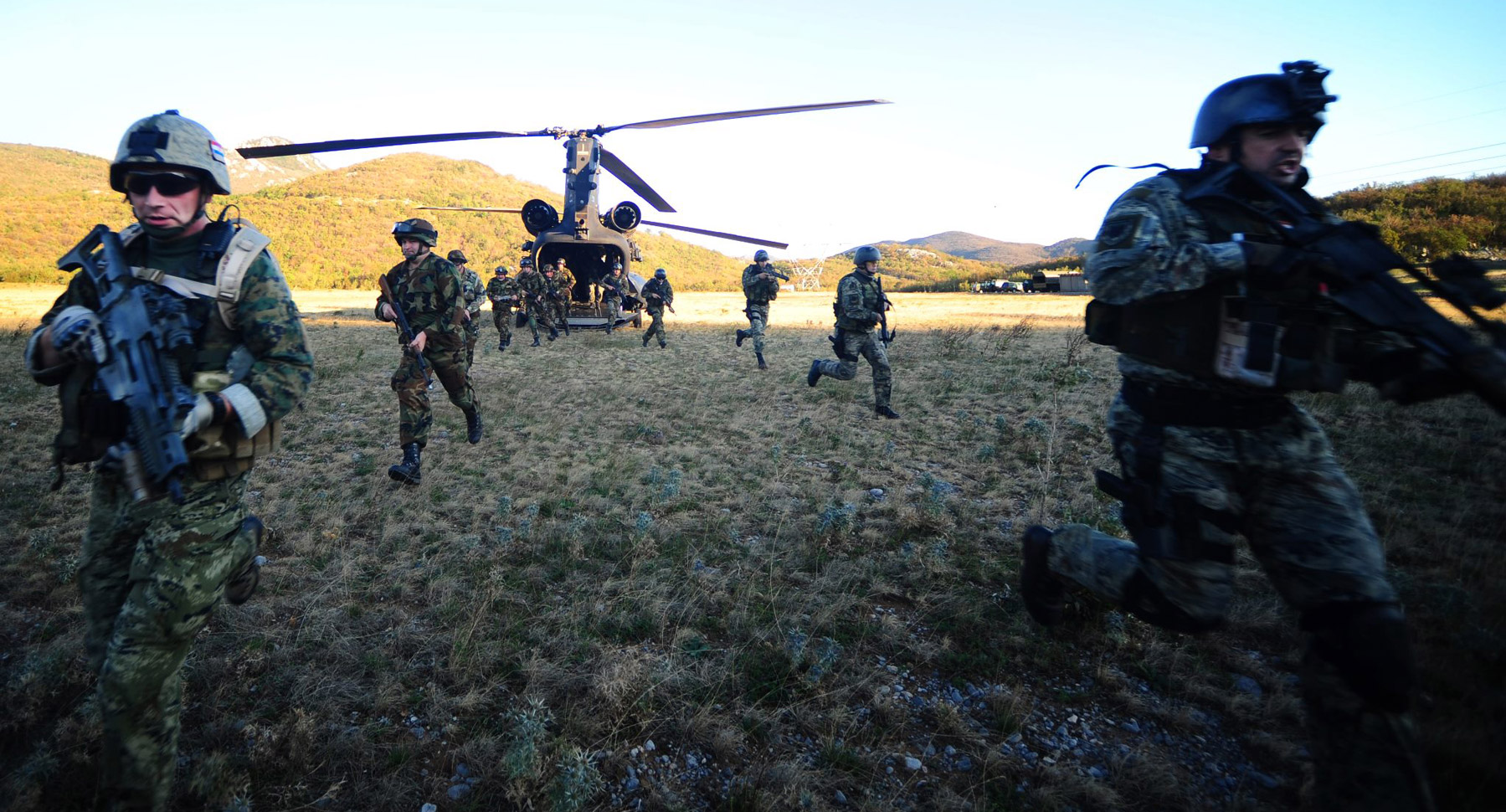Special Operations units in the Republic of Croatia trace their origin to the Homeland War (1991-1995), during which the newly-independent Croatia fought a war of liberation against insurgent forces composed of the Serbian minority in Croatia, which were backed by the Serb-dominated Yugoslav National Army.
The goal of the insurgents was to usurp lands that were an integral part of sovereign Croatian territory and have them become a province of a fabricated Serbian dominion through the means of ethnic cleansing and rewriting of history. Throughout the war, one third of Croatia’s territory was occupied by Serb insurgents, with the local Croatian population being expelled, sent to concentration camps, raped or murdered.
Croatia was unprepared for the hostilities which were to unfold and hastily began organizing its defenses by establishing its own police and military forces. The Serbian insurgents on the other hand, had the full political and military support of the Serb-dominated central government of the still-existing Socialist Federative Republic of Yugoslavia, from which Croatia declared independence along with other constituent countries. The international community responded to the impending hostilities by proclaiming an arms embargo, thereby further increasing the difficulties of standing up a competent fighting force in Croatia. However, the embargo favored the insurgents since they were backed by what was one of the best-armed militaries in Europe at the time, the Yugoslav National Army.
Croatian ‘special’ units started being stood-up along with the rest of the conventional armed forces from the very beginning, however their ‘special’ status was most often based on criteria such as the all-volunteer nature of their members, their physical abilities, and other factors that were attainable in a short amount of time, since their actual training and equipment left much to be desired. As hostilities commenced however, and the Homeland War progressed, the combat experience and equipment of the Croatian Armed Forces increased exponentially, eventually leading to the great military operations of the year 1995 in which most of the occupied territories were liberated, and conditions were set for a peaceful reintegration of the remaining territories.
As the war ended, the victorious Croatian Armed Forces began the gradual scaling down of a peace-time army, with the resulting disbanding or merging of various units. The existing special operations unit were not immune to the process and underwent various reductions. Croatia became a NATO country in 2009 and joined the EU in 2013 which puts various obligations to the international community on both the country and its armed forces. The result is an ongoing process of participation in multinational military operations, modernization of weapons and equipment and the constant growth of operational experience and capabilities of the modern Croatian Armed Forces. As a small yet highly flexible and skillful component of the armed forces, the Croatian Special Operations Forces have a very busy future ahead of them.
